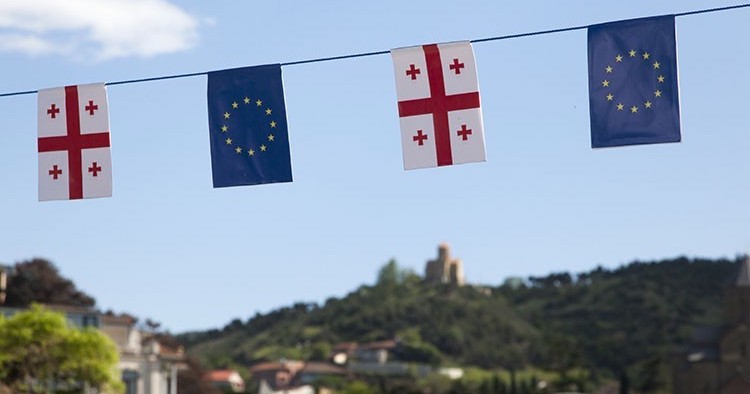European Commission report: Georgia “continuing to fulfil” visa liberalisation benchmarks

The document also emphasised that Georgia had made an effort to better align its money-laundering and terrorism-financing legislation with the EU’s last year.Photo: Nino Alavidze/Agenda.ge
Georgia continues to fulfil visa liberalisation benchmarks and has taken action to address the European Commission’s previous recommendations, the fifth report of the Commission on the fulfilment of visa-free obligations by Eastern Partnership countries and the Balkan states said on Monday.
However, the report also notes “further efforts are needed” in visa policy and in combating money laundering and organised crime. It also said member states reported “good overall cooperation” with Georgian authorities in security, adding the latter continued cooperating with Europol and Eurojust and engaged in joint activities with several member states.
The document said Georgian authorities continued combating corruption, noting a “considerable effort” made for training specialised prosecutors and financial investigators, with a focus on asset-tracking techniques and freezing and confiscation procedures.
“On 16 March 2021, the responsibility to coordinate anti-corruption was transferred from the Ministry of Justice to the government, with the Prime Minister becoming the direct supervisor of the whole policy. In April 2021, the Group of States Against Corruption of Council of Europe published a report confirming that Georgia had largely implemented its recommendations on combating corruption issued in 2017”, the report notes.
Georgia continued to combat organised crime as part of the 2021-2024 national strategy on combating organised crime and the corresponding 2021-2022 action plan, it also acknowledged, with efforts made against cybercrime, drug trafficking and money-laundering schemes used by organised crime pointed out in particular.
- Georgian PM, European Commission president discuss implementation of EU membership status conditions
The activities included frequent international cooperation, it also said, adding the Government’s finalising of the application of the previous national strategy on harmful drug use and its 2021-2022 action plan.
“Georgia actively participates in the fighting organised crime in the Eastern Partnership region’ project implemented by Europol. Cooperation with CEPOL continued to be intensive, especially on stepping up the exchange programme: many Georgian security and police officers benefited from internships in relevant Member State institutions”, the European body’s report highlighted.
National bodies’ efforts against terrorism are also noted in the document, with Georgia’s involvement in international efforts against terrorism and active membership of the Global Coalition against Daesh pointed out.
The report also says Georgia has a comprehensive legal framework in place to criminalise terrorism financing, and calls on the Georgian state to continue efforts to prevent and fight organised crime, in particular profit-laundering from illegal activities.
The document also emphasised that Georgia had made an effort to better align its money-laundering and terrorism-financing legislation with the EU’s last year.
The European Commission’s recommendations also include calls to:
a) Align Georgia’s visa policy with the EU’s list of visa-required third countries, in particular those third countries presenting irregular migration or security risks to the EU.
b) Continue to address unfounded asylum applications in Member States; tailor information campaigns on the visa-free regime to relevant migrant profiles, including vulnerable groups, those remaining beyond the period for which entry was granted (overstays), and those making unfounded asylum applications.
c) Increase efforts to tackle corruption, in particular the role of large-scale vested interests and their influence in the economic and political spheres, in particular by strengthening the independence and coordination of anti-corruption institutions as well as providing them with necessary resources.
d) Finalise efforts to fully align national legislation with the EU acquis on anti-money laundering and counterterrorism financing.
e) Step up efforts against organised crime, especially the networks connected to operations in the EU.
f) Fully align the procedure for appointing Supreme Court judges with the Venice Commission’s recommendations, and adopt and implement legislation evaluating the integrity and performance of Supreme Court judges.
g) Ensure the independence of the data protection authority.
The report will be sent to the European Parliament and the European Council.
 Tweet
Tweet  Share
Share